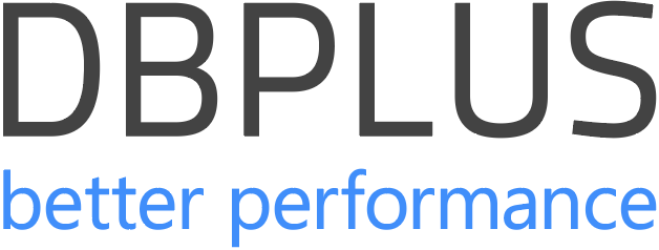AI has certainly given us a lot – from self-driving cars and deep conversations with chatbots to videos featuring world leaders playing Minecraft. However, the ongoing revolution begs the question – what’s the limit? Currently, the list of professions that cannot be replaced by artificial intelligence is quite long.
DevOps professionals also remain in the human camp, at least for now. The essence of this field, with its nuanced demands for creativity, critical thinking, and a deep understanding of complex systems—resists a full takeover by our silicon counterparts. Yet, it cannot be denied that AI can certainly help people who know what they’re doing. Maybe the future will not be about replacement but about augmentation.
AI and Dev
There is no shadow of a doubt that AI in DevOps aids developers in their daily tasks. Let’s take GitHub Copilot as an example. Launched amid much fanfare and skepticism, this AI-powered assistant has proven to be more than just a sophisticated autocomplete feature.
It became an example of how AI in DevOps can augment human capabilities, leading to notable increases in developer happiness and productivity. According to research from GitHub, developers using Copilot report feeling more fulfilled in their work, experiencing less frustration while coding, and enjoying the ability to focus on more satisfying, creative tasks.
Economic Implications
The economic implications of integrating AI into development processes are equally nice to hear. Another study highlighted that the productivity gains attributed to tools like GitHub Copilot could potentially boost global GDP by over $1.5 trillion. This isn’t pocket change we’re talking about.
Limitations of AI in Dev
Yet, for all its prowess and potential, AI is not without its limitations. The instance of GPT passing Google’s coding interview might lead one to think we’re on the brink of AI developers taking over. However, it’s crucial to recognize that while AI can master the syntax and structure of code, its ability to navigate the more complex aspects of software development is still evolving.
The challenges of AI “hallucinations” or generating code filled with bugs are real and not to be ignored. These are not just minor hiccups but substantial obstacles that underscore the necessity of human oversight and intervention.
The Role of Developers
AI’s current forte lies in handling basic coding tasks, offering suggestions, and even automating repetitive aspects of coding, which are indeed valuable contributions. Yet, when it comes to addressing ‘weird’ problems or ensuring the ethical implications of software solutions, the human is what we need. AI may provide the building blocks, but humans are needed to assemble them into meaningful, functional structures that serve society’s needs and values.
The tale of Chevrolet’s AI chatbot, duped into selling cars for a dollar a nice example of what happens when AI encounters scenarios that stray from the straight and narrow path for which it was programmed. These ‘weird’ problems—situations that a human would navigate with common sense, ethical considerations, and contextual awareness—often leave AI befuddled or, worse, lead to unintended consequences.
Beyond their technical expertise, developers bring a human perspective that is critical in guiding AI applications. They ensure that AI systems do not just operate within the bounds of efficiency. But they also adhere to ethical standards and societal norms. The human oversight is what prevents our digital advancements from veering into the absurd, unethical, or plain wrong.
AI and Ops
A lot of tedious, time-consuming, and repetitive tasks can be trusted (partially, or fully if you’re brave enough) to AI:
- Compliance Assurance: AI continuously monitors systems. It doesn’t need rest. It doesn’t need sleep. 24/7 it can ensure adherence to the latest regulatory standards, significantly reducing the manual effort required for compliance checks.
- Data Integrity Checks: Through its ability to rapidly process and analyze data, AI identifies discrepancies and anomalies. This helps the human element make conscious decisions based on accurate and consistent information.
- Autonomous Business Task Management: From routine inquiries to managing complex workflows – AI can handle many business operations autonomously. This minimizes the need for human intervention.
- Quick Data Processing: AI’s capable of going through vast amounts of data faster than a cat can knock your glass over. Early detection of security vulnerabilities and potential system failures prevents significant issues before they arise.
- Summarizing Data: As some of us could learn after having condensed a few lengthy email with Chat GPT, AI’s great in summarising. Similarly, it excels at condensing vast datasets into insights one can act upon. Decision-makers get clear and concise information that is critical for informed decision-making.
The fact that you can say ‘Ops’ without ‘human’ doesn’t mean you should
The integration of Artificial Intelligence (AI) into DevOps has undeniably revolutionized the way operations are automated and optimized. However, this doesn’t mean we should entirely replace the ‘human’ part of ‘Ops’. We have to remember about:
- Imperfection and Error Propensity: AI, for all its advances, is not (not that humans are) infallible. It can make mistakes, sometimes as a result of flawed data or algorithmic biases. Human oversight is there to identify, correct, and learn from these errors.
- Cost: While AI can streamline many processes, setting up and maintaining sophisticated AI systems can be costly.
- Ethical and Legal Concerns: Humans need to oversee these systems to ensure they operate within ethical bounds. Maybe it’s not yet capable of starting a riot. It’s just worth making sure.
- Hallucinations: AI models, especially those based on language, can generate ‘hallucinations’ or outputs that are entirely fabricated and ungrounded in reality. Human intervention is necessary helps discern these inaccuracies.
- Bias and Gaps in Reasoning: AI systems may inherit or develop biases based on their training data or algorithms. Moreover, they often lack the ability to think outside the box or apply common sense reasoning in novel situations. Humans may not be able to analyze thousands of lines of code in seconds, but their creativity knows no limits.
- Operational and Functional Risks: Deploying AI in DevOps workflows introduces new risks, from operational glitches to security vulnerabilities. Human experts are needed to manage these risks, devise contingency plans, and ensure the resilience of operational systems.



